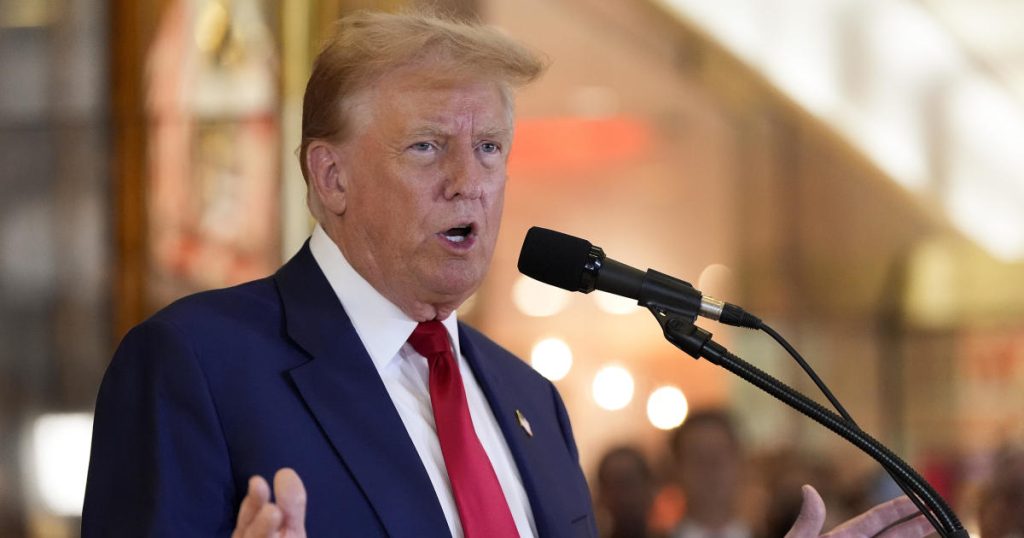The highest court in New York has ruled that it will not consider former President Donald Trump’s challenge to a gag order in his criminal case, in which he was recently convicted of 34 felony counts. The Court of Appeals dismissed the appeal on the grounds that no substantial constitutional question was directly involved. This decision came after Justice Juan Merchan issued the gag order, barring Trump from making public comments about witnesses, jurors, court and prosecutor staff, and even his own family members. Merchan cited Trump’s previous threatening and inflammatory statements about people involved in the case as the reason for the order.
Trump violated the gag order 10 times before and during the trial, where he faced charges for falsifying business records. He was found guilty of participating in a scheme to cover up reimbursements for a “hush money” payment made to an adult film star before the 2016 presidential election. Trump has vowed to appeal the conviction, with the case possibly ending up at the Court of Appeals. Despite his complaints that his free speech rights were violated by the gag order, the lower level appellate court rejected his appeal in May, finding that his public statements posed a significant threat to the integrity of witness testimony.
During arguments before the appellate court, Trump’s attorney claimed that Trump was being attacked publicly by key witnesses in a way that warranted his response. However, the Manhattan District Attorney’s attorney argued that allowing Trump to make inflammatory remarks about those involved in the case would set a dangerous precedent. The appellate court sided with Merchan’s decision to issue the gag order, noting that Trump’s public statements could impact witness testimony. Trump is set to be sentenced in the case on July 11, and his attorney has requested that the gag order be lifted following the trial’s conclusion.
The ongoing legal battle surrounding the gag order in Trump’s criminal case highlights the tensions between free speech rights and the need to ensure fair trial proceedings. Despite Trump’s claims that his ability to respond to public comments by key witnesses was hindered by the gag order, the courts have upheld the order as necessary to protect the integrity of the trial. As the case progresses, the issue of balancing free speech with the right to a fair trial remains a central consideration for the legal system. Trump’s conviction and subsequent appeals serve as a reminder of the complexities and challenges of navigating the intersection of free speech and criminal proceedings at the highest levels of government.


